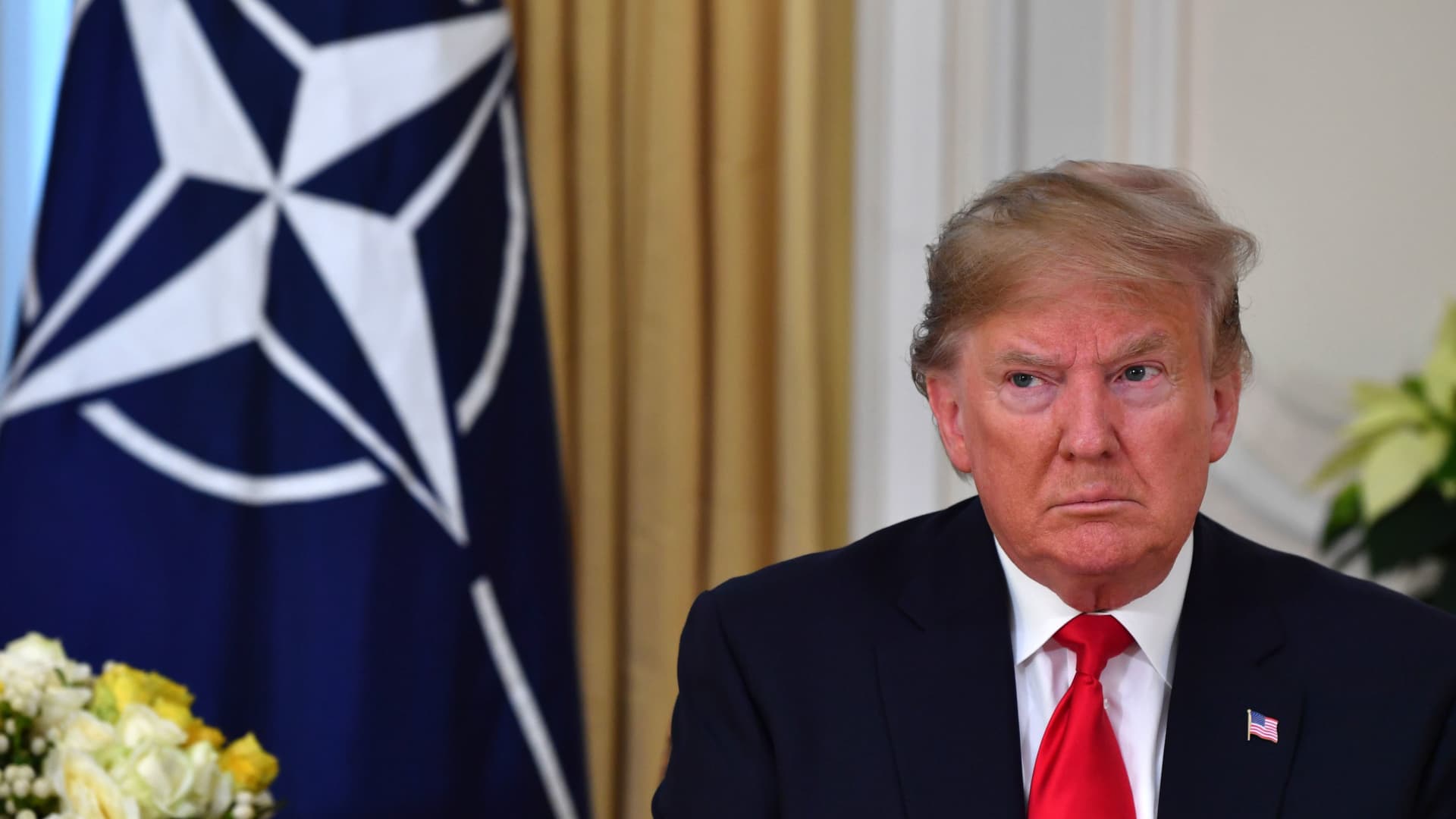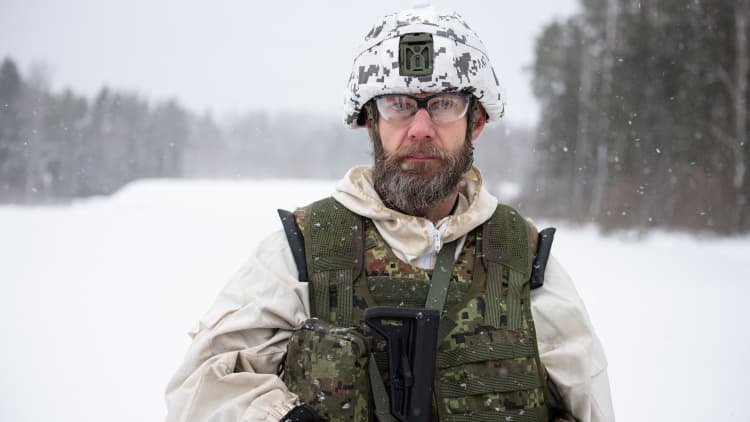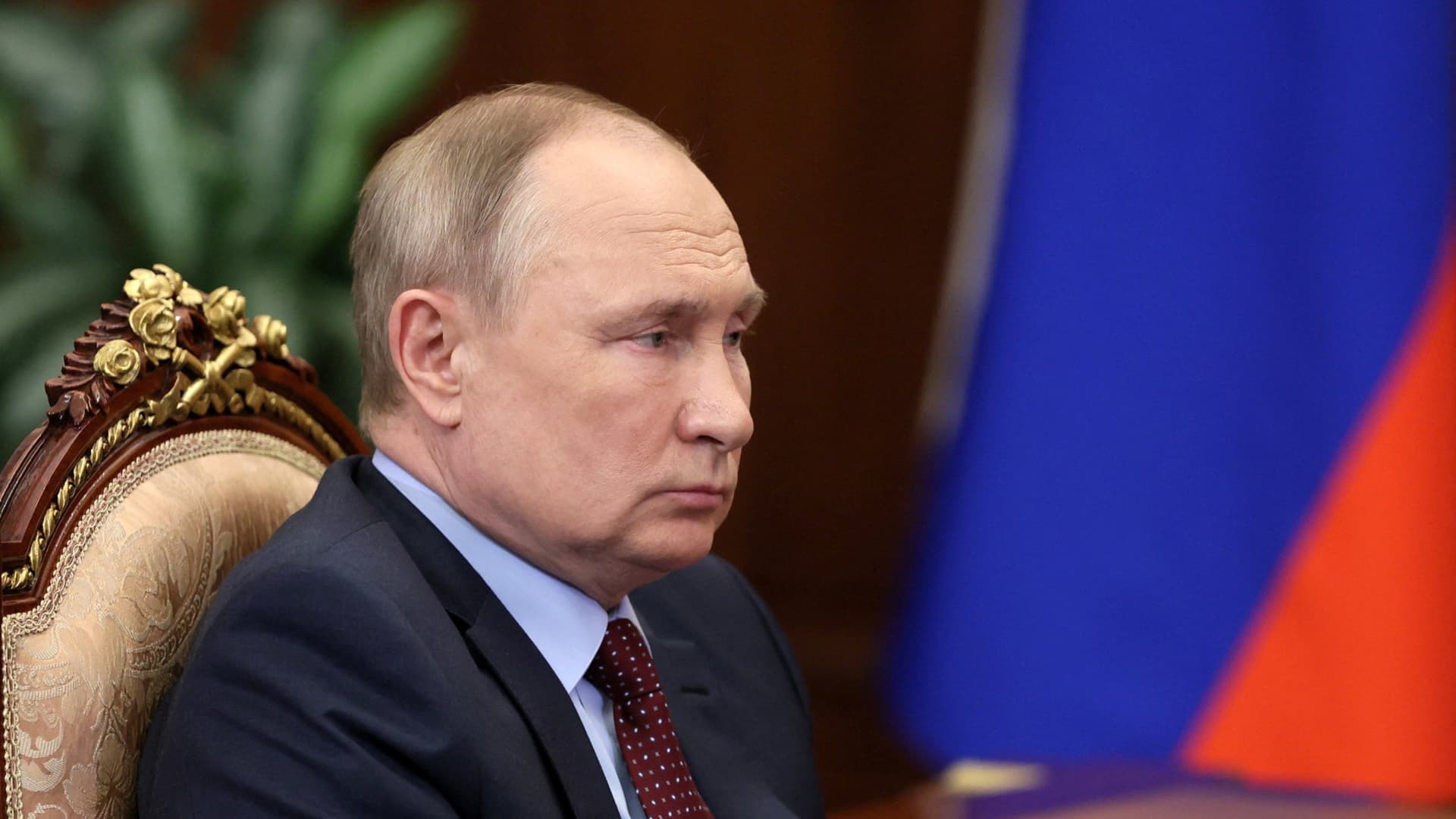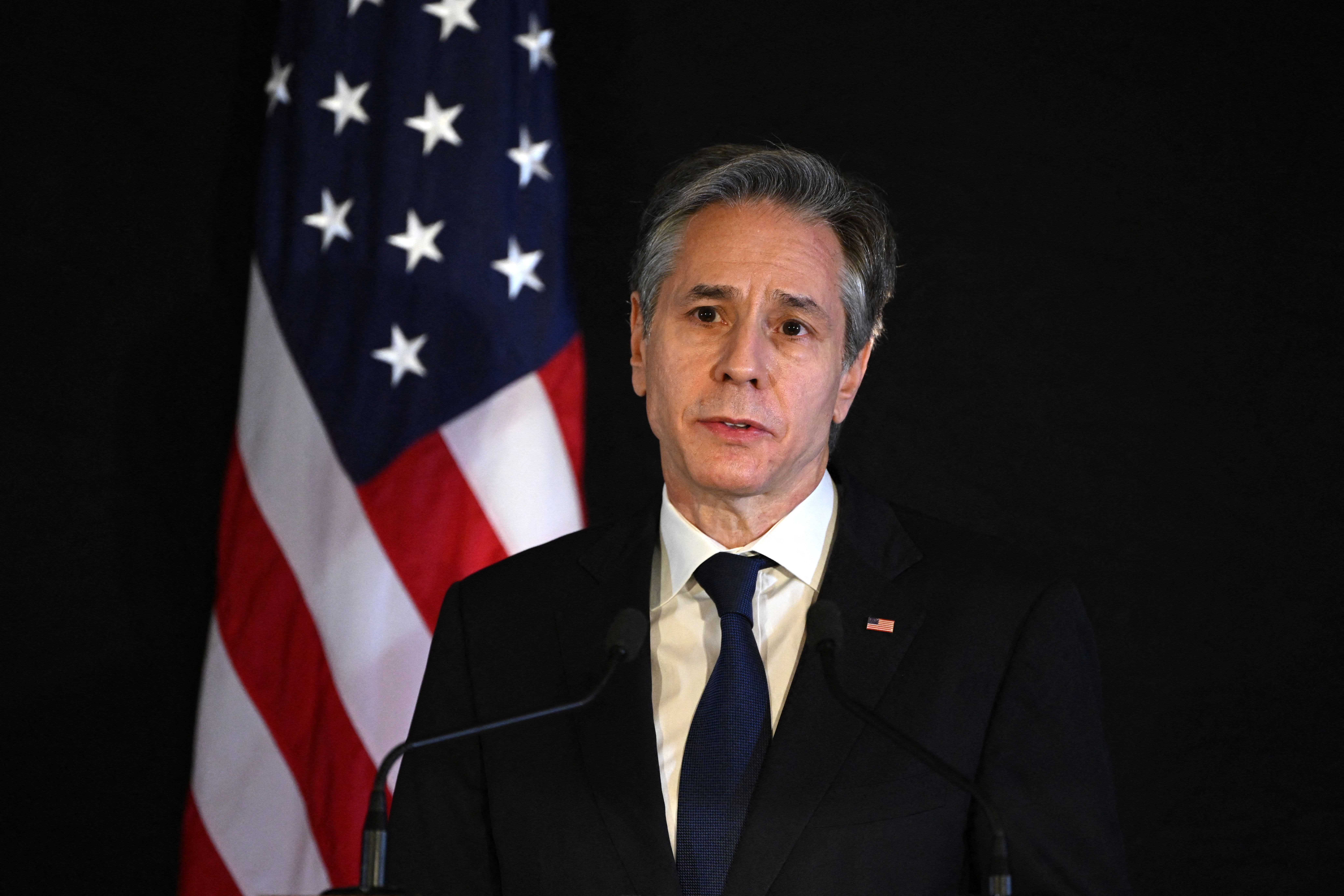Trump’s NATO comments stir up a political storm as Russia keeps quiet
Trump's comments have thrust the Republican front-runner into the center of a political storm and sent shockwaves throughout the Western military alliance.

Former U.S. president Donald Trump pictured during a meeting with NATO Secretary-General Jens Stoltenberg at Winfield House, London on Dec. 3, 2019.
NICHOLAS KAMM | AFP | Getty Images
Former U.S. head of state and presidential candidate Donald Trump stoked the ire of U.S. lawmakers and international leaders, after remarking he would not protect NATO countries from Russian attacks if they lag on their membership payments.
Speaking at a rally in South Carolina on Saturday, Trump said that, as president, he warned NATO allies that he "would encourage" Russia "to do whatever the hell they want" to a member country that didn't meet its defense spending guidelines.
Trump, who has a long history of criticizing the transatlantic military alliance, recounted a time when an unspecified president of a NATO member challenged him on his threat not to defend them from a potential Russian invasion if they failed to meet NATO's target of spending at least 2% of their budget on the military.
"You didn't pay, you're delinquent … No, I would not protect you. In fact, I would encourage them to do whatever the hell they want. You got to pay. You got to pay your bills," Trump said.
The U.S. has historically had the largest number of military personnel out of all NATO countries, counting 1.35 million troops in 2023, according to Statista.
Trump has been accused of entertaining close ties with Russia during his first presidential mandate. The Kremlin declined to address Trump's remarks.
"I am still [Russian President Vladimir] Putin's press secretary, but not Trump's," Kremlin spokesperson Dmitry Peskov told reporters, according to Reuters.
Top Western officials, as well as both Democratic and Republican lawmakers, sharply criticized Trump's comments. U.S. President Joe Biden, who has also declared intentions to run for a second presidential mandate, described Trump's remarks as "appalling and dangerous."
"Sadly, they are also predictable coming from a man who is promising to rule as a dictator like the ones he praises on day one if he returns to the oval office," Biden said Sunday in a statement.
Trump is vying to clinch Republican backing for his presidential bid at the polls later this year, facing off former South Carolina governor Nikki Haley.
In an interview with CBS, Haley said Sunday that "the last thing we ever want to do is side with Russia."
She added that the NATO alliance "allows us to prevent war."
Former Republican presidential candidate Chris Christie also criticized Trump's comments, saying in an interview with NBC News on Sunday that "this is why I've been saying for a long time that he's unfit to be president of the United States."
NATO Secretary General Jens Stoltenberg and US National Security Advisor Jake Sullivan (not seen) hold a joint press conference after the North Atlantic Council meeting held at the NATO Headquarters in Brussels, Belgium on February 7, 2024.
Dursun Aydemir | Anadolu | Getty Images
NATO Secretary General Jens Stoltenberg said that NATO stands "ready and able" to defend all allies and any attack would be met with a "united and forceful" response.
"Any suggestion that allies will not defend each other undermines all of our security, including that of the US, and puts American and European soldiers at increased risk," Stoltenberg said in a statement.
"I expect that regardless of who wins the presidential election the US will remain a strong and committed NATO Ally," he added.
NATO's spending target
NATO's 31 members, which include the U.S., Canada, France, Italy, Turkey and the U.K., agreed in July last year to spend at least 2% of their gross domestic product on defense, firming up a previous goal.
A report released by NATO last year showed only 11 of the then-30 member alliance were spending 2% of GDP or more on defense. The defense spending target is not a requirement and many countries have sought to ramp up their military spending since Russia launched its full-scale invasion of Ukraine.
NATO's so-called Article 5 mutual defense clause means that an attack against one NATO member is considered an attack against all allies.
The European Union's foreign policy chief Josep Borrell said Monday that NATO cannot be an "a la carte" military alliance dependent on the impulses of the U.S. political leadership.
"NATO cannot be an 'a la carte' military alliance ... depending on the humor of the president of the U.S.," Borrell said when asked to respond to Trump's comments, Reuters reported.

Germany's Foreign Office on Sunday posted "One for all and all for one" on its English language X social media account, supported by the hashtag "#StrongerTogether."
Polish Defense Minister Wladyslaw Kosiniak-Kamysz said Sunday via X that NATO's motto of "'one for all, all for one' is a concrete commitment."
"Undermining the credibility of allied countries means weakening the entire North Atlantic Treaty Organization. No election campaign is an excuse for playing with the security of the Alliance," he added.

 Fransebas
Fransebas 





























